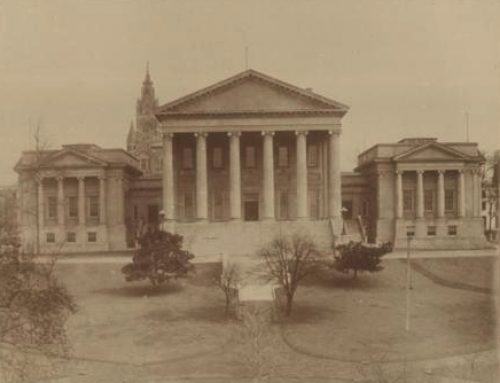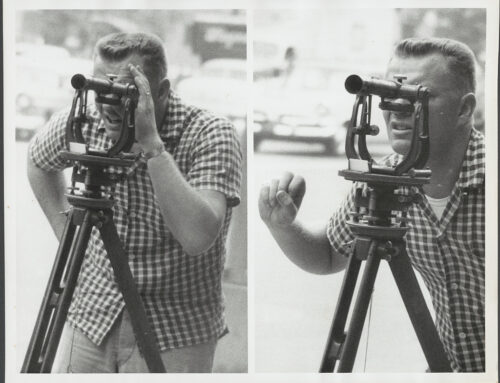 On June 20, 2023, the Court of Appeals of Virginia (the “CAV”) issued, in an unpublished decision, Page v. Portsmouth Redevelopment & Hous. Auth., No. 0175-22-1, 2023 Va. App. LEXIS 407 (2023). In the underlying circuit court case, H. Cliff Page (“Page”) challenged the Portsmouth Redevelopment and Housing Authority’s (“PRHA”) role in demolishing a building (the “Subject Property”). Specifically, he claimed that his own building, which shared a common wall with the Subject Property, was damaged as a result of PRHA’s negligence. Page sought to have his claim heard by a jury. PRHA asserted that it was protected by sovereign immunity, positing that it was performing a governmental function.
On June 20, 2023, the Court of Appeals of Virginia (the “CAV”) issued, in an unpublished decision, Page v. Portsmouth Redevelopment & Hous. Auth., No. 0175-22-1, 2023 Va. App. LEXIS 407 (2023). In the underlying circuit court case, H. Cliff Page (“Page”) challenged the Portsmouth Redevelopment and Housing Authority’s (“PRHA”) role in demolishing a building (the “Subject Property”). Specifically, he claimed that his own building, which shared a common wall with the Subject Property, was damaged as a result of PRHA’s negligence. Page sought to have his claim heard by a jury. PRHA asserted that it was protected by sovereign immunity, positing that it was performing a governmental function.
The circuit court proceeded to conduct an evidentiary hearing on PRHA’s plea in bar for sovereign immunity. The court issued a letter opinion on January 2020, ruling that the PRHA acted in a governmental capacity and was immune from tort liability. An order memorializing this ruling was entered two years later in January 2022. Shortly thereafter, Page filed a motion for reconsideration, claiming that the PRHA acted with gross negligence. The circuit court denied Page’s motion, noting that he had not pled gross negligence. Page filed a second motion for reconsideration 21 days after the entry of the January 2022 order. Attached was a letter from the PRHA to the Virginia Department of Historic Resources (the “Letter”) discussing various concerns PRHA raised about whether to demolish, rehabilitate, or sell the Subject Property. The following day, the circuit court issued an opinion and order denying the second motion to reconsider.
Page appealed to the CAV.
Takeaways from the CAV’s Decision:
- You can impliedly waive your right to a jury trial
Although Page had a statutory right to a jury trial and he made the request known in his complaint, his subsequent actions constituted an implicit waiver. The CAV cited Page’s failure to object at the evidentiary hearing and his failure to mention his right to a jury trial until two years after the letter opinion was issued, as reasons for the waiver.
- Be Mindful of Procedural Technicalities
The CAV concluded that the circuit court erred in considering the Letter because (1) it entered its order denying the second motion for reconsideration after it lost jurisdiction over the case, and (2) the Letter was not properly authenticated.
- Gross Negligence Should Be Specifically Pled
Despite Page’s arguments to the contrary, the CAV concluded that alleging negligence is not sufficient to raise a gross negligence claim. Because ordinary and gross negligence are distinct, the CAV reasoned, the two theories must be specifically plead to put the other party on notice.
- Sovereign Immunity is Still Alive and Well in the Commonwealth
Sovereign immunity serves as a strong defense for municipalities. It provides them from tort liability arising from their exercise of governmental functions. Here, the CAV upheld the circuit court’s finding that the PRHA was a municipal housing authority occupying the same status as a municipality. Apparently, Page conceded at trial that the PRHA acted on behalf of the City. Therefore, Page’s argument on appeal that the City’s interest in demolishing the building to protect public welfare does not impute to the PRHA was barred. The CAV then analogized the facts to Lee v. City of Norfolk, 281 Va. 423 (2011), where the Court determined that the demolition of a building by the City of Norfolk was a governmental function which gives rise to sovereign immunity.
Although these takeaways are important, they should also be taken with a grain of salt. The Supreme Court of Virginia in February 2024 heard oral argument for this case. Thus, a ruling may be issued in the near future that either upholds or alters this decision.
If you enjoyed this article, please feel free to click the subscribe button below if you are not already a subscriber.
Diamond Royster is a Pender & Coward attorney focusing her practice on local government, eminent domain / right of way, and waterfront law matters. Prior to joining the firm, Diamond served as a law clerk for the Honorable Cleo Powell of the Supreme Court of Virginia.






Leave A Comment